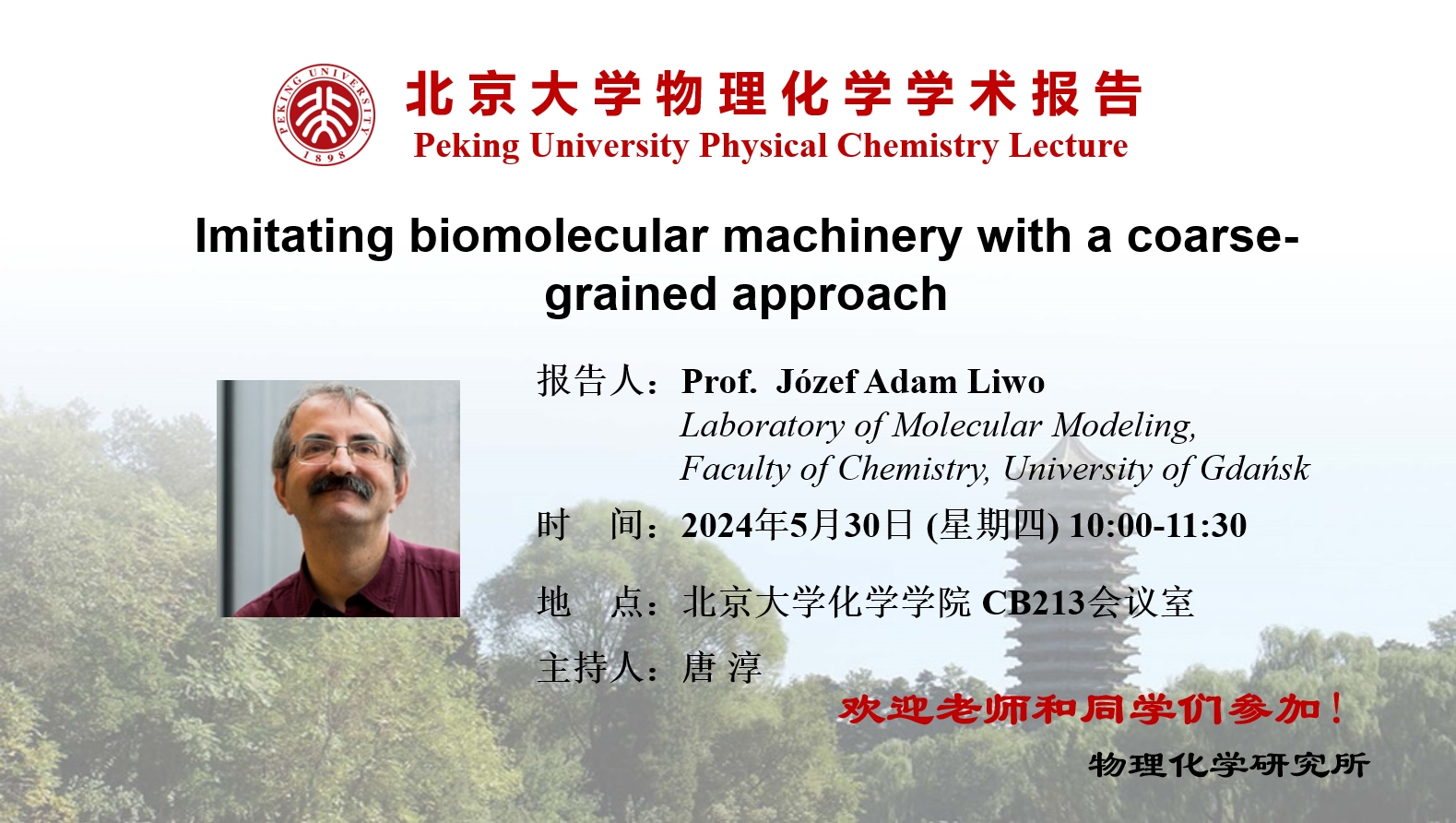
报告摘要:
Understanding the functioning of the machinery of life is a long-term goal of contemporary biophysics and molecular biology. Proteins, along with nucleic acids and polysaccharides, are key macromolecules of life responsible for the shape and function of individual cells and entire organisms. The function of a biomolecule depends on its structure and dynamic pattern. Use of computational methods is indispensable in both data-free and data-assisted modeling of their structures, dynamics and thermodynamics and consequently, the biological processes they participate in. The diversity of time- and size-scales requires multiscale modeling, from atomistically-detailed to continuous level. This talk will be focused on the intermediate level, termed coarse-grained modeling, in which groups of atoms are merged into single entities. The physics-based UNIfied COarse gRaiNed (UNICORN) model developed in our laboratory that encompasses proteins, nucleic, and polysaccharides will be discussed along with its applications, including its recent implementation on Graphical Processor Units (GPU) that enables us to model the dynamic behavior of proteins with size of 100K+ amino-acid residues and its server version at reasonable accuracy. Recent developments of data-assisted modeling with UNICORN will also be presented.
报告人简介:
Professor Józef Adam Liwo is the head of the Laboratory of Molecular Modeling at the University of Gdańsk, Poland. He obtained his PhD(1989) in Physical and Theoretical Chemistry and his MSc (1983) in Chemistry from the University of Gdańsk. He completed postdoctoral research at Cornell University in the H.A. Scheraga lab during 1990-1992 and 1994. He became a Professor of Chemical Sciences in 2001 after completing his habilitation in 1997.
His most important achievement is the development of a complete physics-based theory of coarse graining and its successful implementation to studying the structure and properties of biological macromolecules through the development of the UNified COarse gRaiNed model of biological molecules (UNICORN). Despite high degree of reduction of representation, the UNICORN model reproduces the structure and properties of proteins and nucleic acids, at the same time enabling 1000–10000-fold extension of the time scale of simulations. In particular, the UNRES component of UNICORN is able to fold proteins in the ab initio mode, as proved in the CASP experiments for protein structure prediction. The model has been made available to the community in the form of the UNRES package, which also includes the UNRES server.